Students try their best to develop their capabilities for acting while the South Korean lecturer uses her body language to express her ideas.
As a lecturer of Yonsei University, Park has spent two weeks each year in Việt Nam to teach students how to play roles in the framework of the cinema course Autumn Meeting initiated by director Phan Đăng Di and producer Trần Thị Bích Ngọc. Park has made contributions to the class for six years so far.
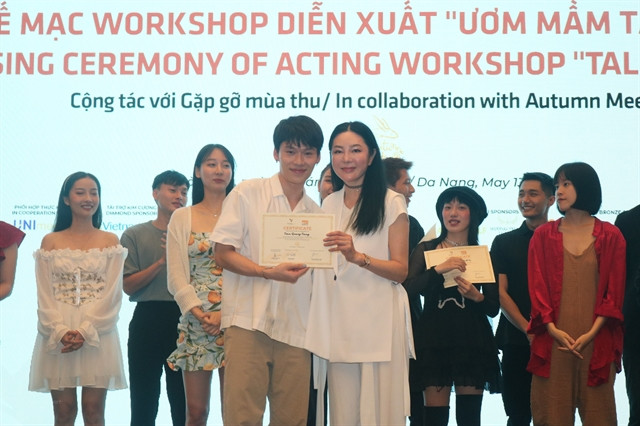 |
| Lydia Park presents certificates to her Vietnamese students. — Photo vietnamplus.vn |
She gradually has gained a love for Vietnamese students and considers them her family members.
“In 2016, I joined Autumn Meeting for the first time,” she told Việt Nam Plus in an interview. “At that time, I think I would just join in once that time. But then, I have returned many times. Over time, I have gained strong feelings for my Vietnamese students.”
Park said when teaching young Vietnamese students, she sees herself.
“I see the dreams, desire, and enthusiasm to become a good actor, like my dream when I was young,” she said.
“Vietnamese students help awaken in me something that I sometimes forget about who I am and remind me of my driving force,” she said.
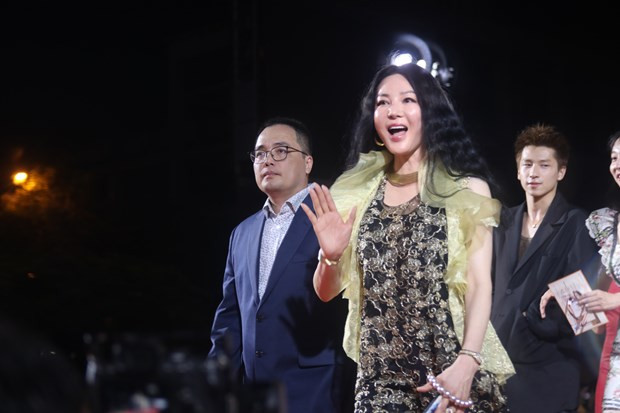 |
| Lydia Park and director Phan Đăng Di (left). |
Park said when teaching them her experiences and knowledge, she not only loves them as if they were her children but also considers them spiritual children making her proud.
“I have not kept anything a secret for myself, I share all with them,” she said.
Park said the duty of an actor is acting many roles, with many faces, and many characteristics. In order to later play thousands of roles, students should mobilise the proper talent to act. But not all of them have such natural resources inside.
“My Vietnamese students seem to have all, from triumphs to disappointments, from happiness to sorrows,” she said. “These include their experiences and feelings hidden inside their ‘Pandora box’.”
Park said what she likes in Vietnamese students is their simplicity and their open mind to receive things. They can quickly understand lessons, like a piece of white paper ready to write things and put colours on it.
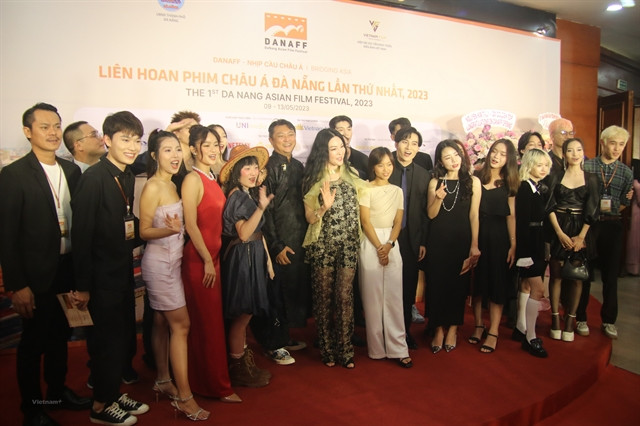 |
| Lydia Park poses for a photo with her students. — Photo vietnamplus.vn |
Park got her Ph.D. at Lordland University, California, in the US for an empirical study on acting training by professional actors in the Vietnamese film industry.
“In some way, my teaching method for Vietnamese students is a combination of philosophy by Uta Hagen, Konstantin Stanislavski, and myself - Lydia Park,” she said.
Park wants Vietnamese students to make their acting reach the peak of sincerity so as to act as if they were not acting.
“My duty is helping them self-exploit, open various facets inside them,” she said. “I give them the method rather than describing little by little.”
Having experience teaching in various prominent universities in South Korea for 20 years, Park said she has taught also many famous Vietnamese people such as Miss Grand International 2021 Nguyễn Thúc Thùy Tiên, actor Lãnh Thanh, circus performers Quốc Cơ-Quốc Nghiệp, MC Phí Linh, and MC Quang Đại.
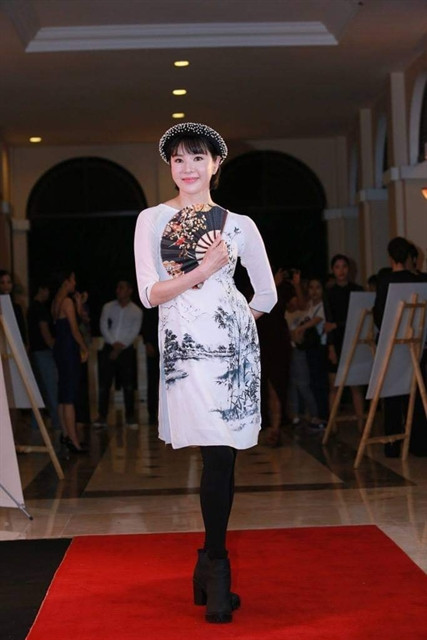 |
| Lydia Park in an outfit revised from the traditional Vietnamese áo dài. — Photo Courtesy of Lydia Park |
She said that the fact that Autumn Meeting collaborated with the Đà Nẵng Asian Film Festival means that Autumn Meeting has expanded further in scale. And scale is important, but depth and quality are also important.
"I'd like to suggest supplementing the classroom environment to improve the quality of the workshop," she said.
She is over 35 years old as an actor and acting coach in Korea and other countries. She studied the world-renowned Stanislavski system in Russia and the Uta-Hagen acting technique in the genealogy of American Acting Methods in the United States.
Therefore, her acting training system is systematically and scientifically designed by combining the Stanislavski system and Uta-hagen acting technique with the experience and know-how she gained in the field as an actor and acting coach.
"The goal of my acting training is to lead the actor's realistic and sincere acting," she said.
"My acting class is mainly in the form of presentation," she said. "Active use of props is necessary for actors to act realistic when performing. This is because bare-handed behavior can only be "cute." In other words, they do fake things. Of course, during the Autumn Meeting Workshop, it will be difficult to prepare props for the presentation because students bring simple belongings from different regions, and the organisers will temporarily set up lecture rooms for a short period of time, so there will be a limit to preparing props."
To compensate for this, her students should be "aware" of the class method to find "alternative props" that can be obtained in the field, and organisers should make active efforts to place basic props such as desks and chairs in the classroom in advance.
Park advised people who want to become actors that they should know how to mobilise the limitless resources inside themselves.
“The road to becoming an actor will be very long and far, you should not want to become an actor just in one moment or give up easily if you haven’t got success,” she said. “You should always exploit the potential in yourself! Keep practising to go ahead and when the opportunity comes, you are ready.”
Park noted that the world, including Korea, is paying attention to the Vietnamese film market. She is currently working as a producer in a Korean-Việt Nam joint film.
"I express the passion of young Vietnamese actors as if they were lava that was latent a huge explosive power," she said.
"My Ph.D thesis is recognised by academia for being the world's first empirical study of acting training for Vietnamese actors," she said. "Therefore, I recommend opening a "forum" that focuses on acting training in a cinema course. In the process of scholars from around the world presenting and discussing acting, I believe that the actors' brilliant acting will be completed by the development of the acting training system in Việt Nam."
Vietnamese scent
Park said she liked the smell of rau mùi or ngò in Vietnamese (cilantro in English) while most South Koreans do not like it.
When she came to Đà Nẵng in 2016, she sniffed that smell when she got off the plane at the airport. Then she realised that the herb is popular in restaurants in Việt Nam.
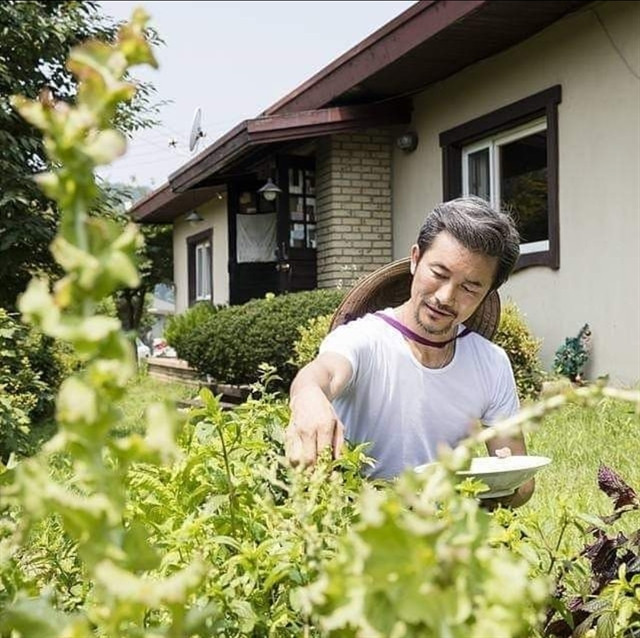 |
| Lydia Park's husband takes care of cilantro in her garden. — Photo Courtesy of Lydai Park |
"When I studied abroad in America, I worked as a cashier at a vegetable store," she told Việt Nam News. "One day, when I was very tired, a customer put something on the counter and something smelled fragrant. I wondered where it came from, and it was a "ngò". All tiredness disappeared with the fresh scent I smelled for the first time in my life. Like an aroma. I knew for the first time that a perfume like my dog's aroma was a Vietnamese plant. Since then, I've become a "ngò" fanatic."
Since it is not easily available in South Korea, her husband planted it in her house's backyard for her.
"I eat the fish like a salad almost everyday," she said. "I love 'ngò' so much that I can wrap it in barbecue and even put it in ra-men."
She said Việt Nam is like an aroma to her, not only "ngò" but also in her heart.
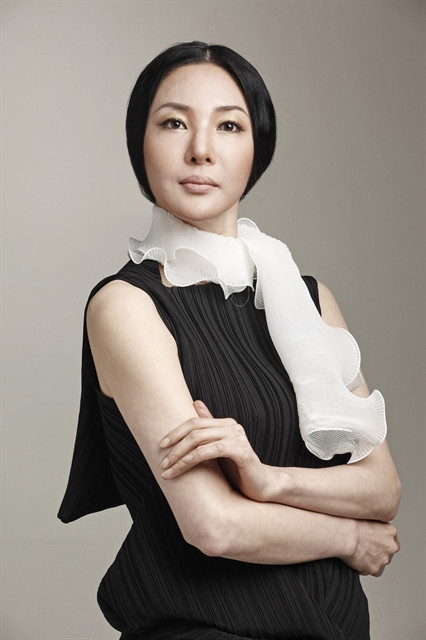 |
| She combines the philosophy of Uta Hagen, Konstantin Stanislavski, and her own to teach Vietnamese students. — Photo Courtesy of Lydia Park |
"I feel comfortable when I come to Việt Nam," she said. "What is certain is that I love Viet Nam and especially my students in Việt Nam."
"I just wish that I would be not an acting teacher from Korea, but a senior who walks the same path with the same dream, and furthermore, as a mother who desperately wants them to achieve their dreams," she added.
Park has played in various movies like “Fuck Up Shoes” (2003); “Hansel & Gretel” (2007); “Mission Impossible: Kidnapping Granny K” (2007) and series like “Princess Hours” and “She is Wow” (2013).
She is now a lecturer of acting at Yonsei University and the Korean Academy of Film Arts. VNS